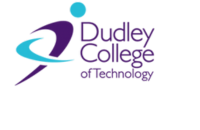We’ve all heard that artificial intelligence will be competing with us for our jobs in the future – but did you know it might already be helping companies recruit?
In many ways, recruitment is an ideal fit for AI. It often involves processing huge amounts of information: it was reported that Tesco had to sift through 2.8 million CVs last year. And human decision-making has been shown to be flawed and biased.
But automated recruitment processes are likely to be a big change for job hunters. So, what do you need to know to prepare for them?
Computers could be analysing your interview body language
High-profile employers such as Goldman Sachs and Unilever are already using AI-enabled software that can analyse body language, tone and key words to match up with those of previous high-performing candidates.
The algorithm then puts these candidates at the top of the pile, allowing human recruiters to focus more time on them. On the plus side, the software gives you the chance to re-record your answers if you make a mistake – so at least the AI sees you at your best.
Chatbots are conducting interviews
Deutsche Telekom is one company that has been using AI chatbots to speak to applicants for its start-up incubator hub:raum. While the chatbot doesn’t conduct the actual interview, it does act as the first point of contact.
The company found that it enabled them to meet demand for job hunters to find information out of hours, and candidates felt they were able to ask blunt questions they might have balked at asking a human recruiter – like about salary ranges.
Automated recommendation engines might headhunt you
You might not have to do anything to find that AI is involved in your job search: it might come looking for you. Ex-Google and Facebook staff are trying to build a recommendation algorithm to match the right person to the right job.
They are trying to analyse millions of career profiles scraped from the internet to discover the career paths that led to success, and those that didn’t. They believe that should enable them to predict the best path for an individual – and who would be the perfect fit for a new vacancy.
Understanding the AI could become a key job-hunting skill
According to the Guardian, applicants are already looking for ways to get an advantage when it comes to automated recruitment systems. Some users sent applications with ‘Oxford’ or ‘Cambridge’ in invisible white text so they would get selected by the screening process.
While underhand measures like this aren’t recommended, it’s likely that future job hunters will need to understand what automated systems are looking for. Then successful candidates will fine-tune their CVs and covering letters to fit the needs of the high-tech systems.

